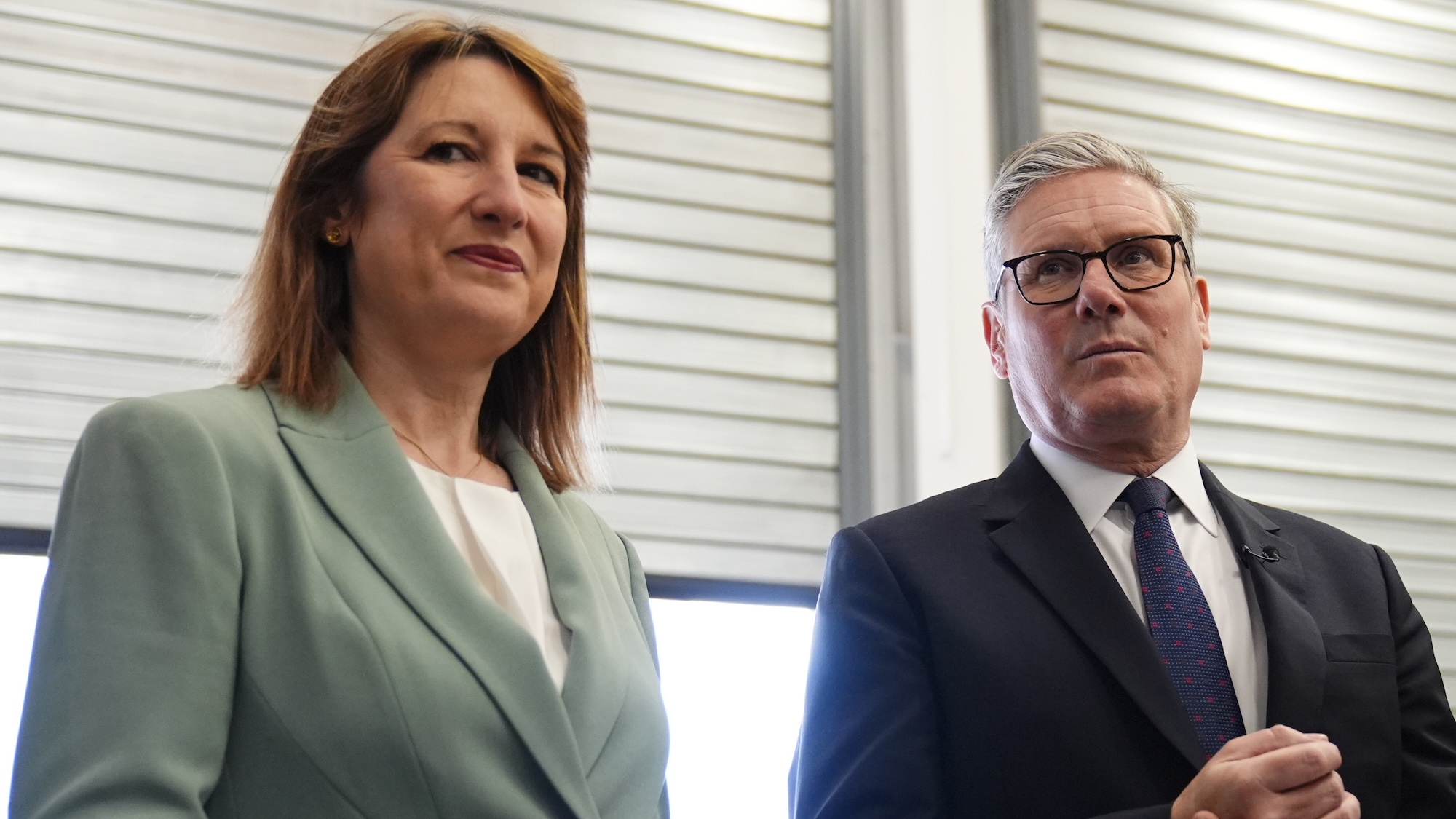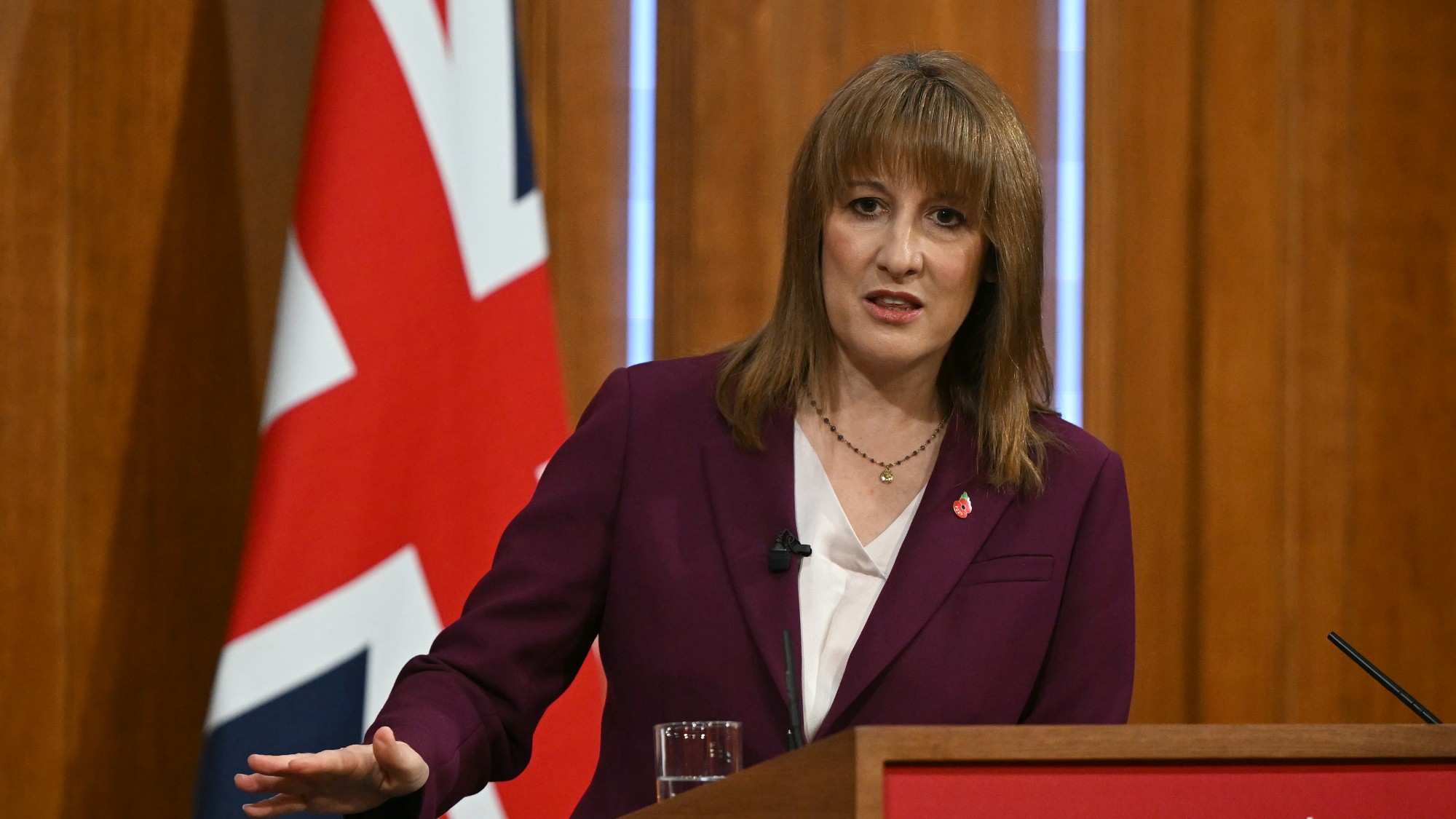How will Labour pay for welfare U-turn?
A dramatic concession to Labour rebels has left the government facing more fiscal dilemmas

A free daily email with the biggest news stories of the day – and the best features from TheWeek.com
You are now subscribed
Your newsletter sign-up was successful
After the government was forced into a further, last-minute climb-down on its welfare reform bill, questions are now being asked about how the Treasury will balance the books.
The extra expense is expected to be in the range of £2.5 billion and could mean "tax rises in this autumn's budget are inevitable", said Chris Mason at the BBC, while the Chancellor Rachel Reeves is "being questioned by Labour figures at all levels" about where the money will come from.
What did the commentators say?
Though the bill eventually passed through Parliament, the debacle showed the government is "transparently not in control of events" and the "implications" of the concessions are "head-spinning", said the BBC. Tax rises look likely, and potential changes to policies like the two-child benefit cap will "no longer be possible".
The Week
Escape your echo chamber. Get the facts behind the news, plus analysis from multiple perspectives.

Sign up for The Week's Free Newsletters
From our morning news briefing to a weekly Good News Newsletter, get the best of The Week delivered directly to your inbox.
From our morning news briefing to a weekly Good News Newsletter, get the best of The Week delivered directly to your inbox.
That lack of control in trying to make billions of savings ended as it did in the government's "attempt to cut the winter fuel allowance", with it "spending slightly more than if it had done nothing at all", said Will Dunn in The New Statesman.
It leaves the chancellor in a "deeply frustrating position", not least because she is cornered by her own "fiscal rules" and the promise "not to raise any of the three biggest revenue-raising taxes". Perhaps now is the "time to be bold" for Reeves; "tweaks to the system" are not likely to solve Britain's problems, but an "overhauled" tax system might.
Bending the fiscal rules would mean softening "her self-proclaimed 'iron chancellor' image", but she has already "declined to explicitly rule out amending the rules", said George Parker and Sam Fleming in the Financial Times. A change, however, could "damage the chancellor's credibility with investors and put her job on the line", particularly given her already "mounting fiscal and political woes".
Reeves "could yet strike lucky", and "growth could bounce back" to rapidly ease the pressure, said Heather Stewart in The Guardian. However, the current fiscal outlook means "she would have to proceed with caution" to "allow herself more leeway", and the Treasury "surely" must now be "poring over a menu of potential tax rises" to announce in the autumn budget.
A free daily email with the biggest news stories of the day – and the best features from TheWeek.com
Higher taxes would not be opposed by many left-wing Labour MPs, and the successful rebellion against the welfare bill means they "scent blood in the water", said Ben Riley-Smith in The Telegraph.
The "worsening economic forecasts" and the "eroded" authority at the top of government will be where the rebels "press their advantage", with almost certainly calls for "new wealth taxes" to help balance the books.
What next?
Labour entered government determined to present "stability and strength" in its handling of the economy, but so far its "tax and spending decisions" have turned into a "grim spectator sport", said Stewart. The Treasury now has "unenviable tasks" ahead of it before the autumn, including working on a "possible package of tax increases" and hoping the Office for Budget Responsibility's forecast will not "downgrade its expectations of productivity" as much as is predicted.
There are now two choices facing the government: "muddle through" with "compromises" until facing "disaster at the next election", or "try to make history" with bold plans, said Dunn. But while it's easy to "present such plans", actually "getting it past the party and the public is very different".
Richard Windsor is a freelance writer for The Week Digital. He began his journalism career writing about politics and sport while studying at the University of Southampton. He then worked across various football publications before specialising in cycling for almost nine years, covering major races including the Tour de France and interviewing some of the sport’s top riders. He led Cycling Weekly’s digital platforms as editor for seven of those years, helping to transform the publication into the UK’s largest cycling website. He now works as a freelance writer, editor and consultant.
-
 6 of the world’s most accessible destinations
6 of the world’s most accessible destinationsThe Week Recommends Experience all of Berlin, Singapore and Sydney
-
 How the FCC’s ‘equal time’ rule works
How the FCC’s ‘equal time’ rule worksIn the Spotlight The law is at the heart of the Colbert-CBS conflict
-
 What is the endgame in the DHS shutdown?
What is the endgame in the DHS shutdown?Today’s Big Question Democrats want to rein in ICE’s immigration crackdown
-
 Reforming the House of Lords
Reforming the House of LordsThe Explainer Keir Starmer’s government regards reform of the House of Lords as ‘long overdue and essential’
-
 How long can Keir Starmer last as Labour leader?
How long can Keir Starmer last as Labour leader?Today's Big Question Pathway to a coup ‘still unclear’ even as potential challengers begin manoeuvring into position
-
 ‘Being a “hot” country does not make you a good country’
‘Being a “hot” country does not make you a good country’Instant Opinion Opinion, comment and editorials of the day
-
 The launch of Your Party: how it could work
The launch of Your Party: how it could workThe Explainer Despite landmark decisions made over the party’s makeup at their first conference, core frustrations are ‘likely to only intensify in the near-future’
-
 What does the fall in net migration mean for the UK?
What does the fall in net migration mean for the UK?Today’s Big Question With Labour and the Tories trying to ‘claim credit’ for lower figures, the ‘underlying picture is far less clear-cut’
-
 Will Rachel Reeves’ tax U-turn be disastrous?
Will Rachel Reeves’ tax U-turn be disastrous?Today’s Big Question The chancellor scraps income tax rises for a ‘smorgasbord’ of smaller revenue-raising options
-
 Will the public buy Rachel Reeves’s tax rises?
Will the public buy Rachel Reeves’s tax rises?Today’s Big Question The Chancellor refused to rule out tax increases in her televised address, and is set to reverse pledges made in the election manifesto
-
 Five takeaways from Plaid Cymru’s historic Caerphilly by-election win
Five takeaways from Plaid Cymru’s historic Caerphilly by-election winThe Explainer The ‘big beasts’ were ‘humbled’ but there was disappointment for second-placed Reform too